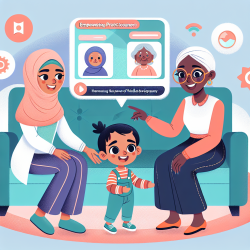Introduction
As a Special Education Director, ensuring that our school district provides the best possible services to our students is a top priority. One of the challenges we face is addressing therapist staffing shortages, which can impact the delivery of specialized services such as speech and occupational therapy. TinyEYE, a company providing online therapy services to schools, offers a solution that can help bridge this gap. By leveraging the insights from the research article titled "A Comprehensive Qualitative Review of Studies Evaluating the Impact of Local US Laws Restricting the Sale of Flavored and Menthol Tobacco Products," we can enhance our approach to implementing online therapy services.
Understanding the Research
The research article provides a comprehensive analysis of the impact of local US laws restricting the sale of flavored and menthol tobacco products. It highlights the importance of policy implementation, enforcement, and the challenges faced in achieving intended outcomes. While the study focuses on tobacco control, the principles of policy implementation and evaluation can be applied to other areas, including online therapy services in schools.
Key Takeaways for Online Therapy Implementation
- Policy Implementation: Just as tobacco sales restrictions require clear and comprehensive policies, implementing online therapy services necessitates well-defined guidelines and procedures. This includes setting clear expectations for service delivery, communication protocols, and data privacy measures.
- Enforcement and Compliance: Ensuring compliance with policies is crucial for achieving desired outcomes. For online therapy, this means regular monitoring and evaluation of therapy sessions to ensure they meet the established standards and provide the intended benefits to students.
- Addressing Challenges: The research identifies challenges such as policy exclusions and industry actions that can undermine policy effectiveness. Similarly, in online therapy, potential challenges include technology access, varying levels of student engagement, and ensuring personalized attention. Proactively addressing these challenges through training and support can enhance service delivery.
- Continuous Evaluation: The research emphasizes the need for ongoing evaluation to assess policy impact. For online therapy, regular feedback from students, parents, and therapists can provide valuable insights into the effectiveness of the services and areas for improvement.
Encouraging Further Research
While the research provides valuable insights, it also highlights the need for further studies to fill gaps in evidence and improve policy outcomes. In the context of online therapy, encouraging further research can help identify best practices, innovative approaches, and effective strategies for integrating online therapy into school settings.
Conclusion
Implementing the insights from the research on tobacco sales restrictions can enhance our approach to online therapy services in schools. By focusing on clear policy implementation, ensuring compliance, addressing challenges, and encouraging continuous evaluation, we can improve the quality and effectiveness of these services for our students. To read the original research paper, please follow this link: A Comprehensive Qualitative Review of Studies Evaluating the Impact of Local US Laws Restricting the Sale of Flavored and Menthol Tobacco Products.










